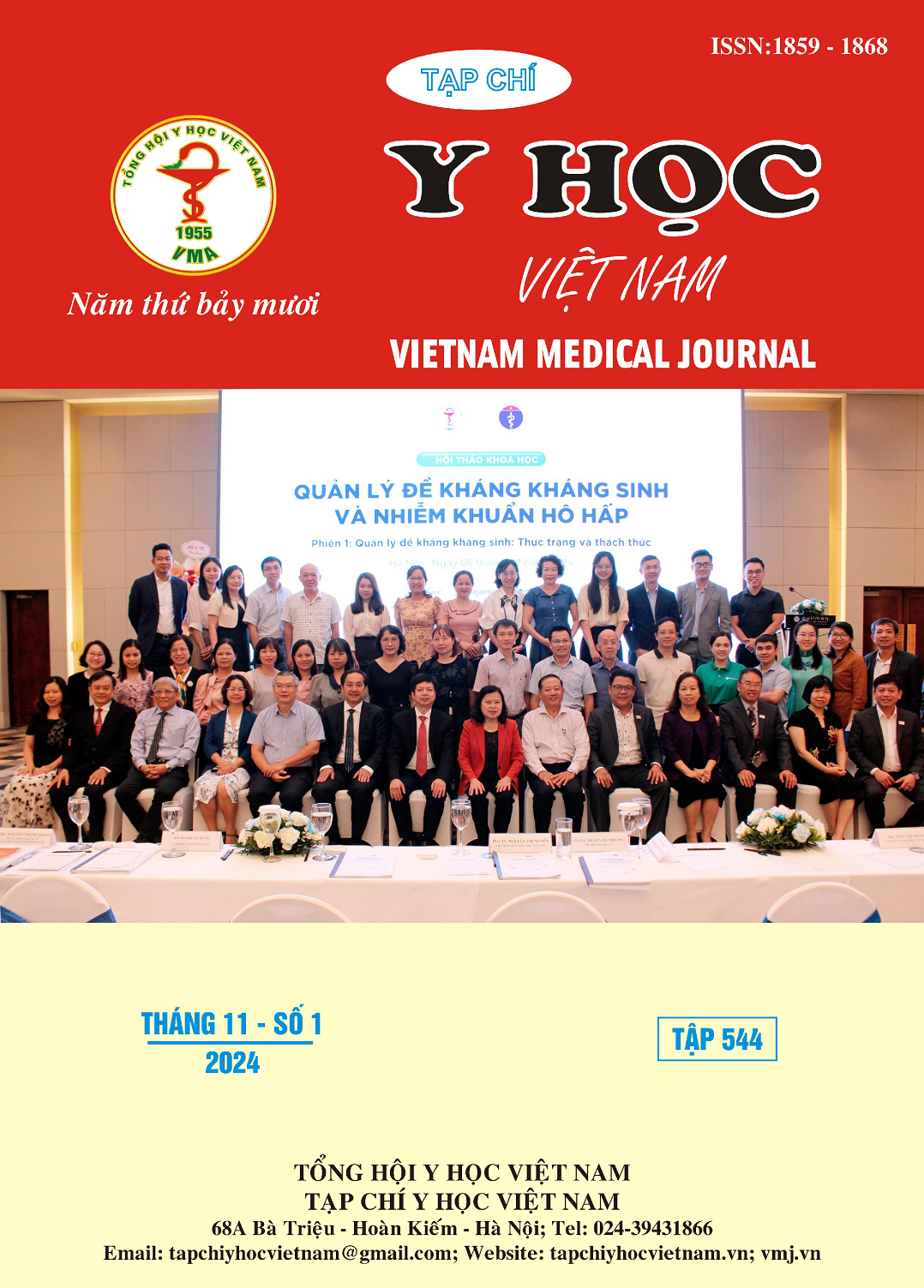KNOWLEDGE AND SELF – CARE BEHAVIOR OF CENCER PATIENTS UNDERGOING CHEMOTHERAPY AT 108 MILYTARY CENTRAL HOPITAL IN 2023
Main Article Content
Abstract
Objective: To describe and analyze some factors related to the knowledge and self-care behavior of cancer patients undergoing chemotherapy at the 108 Military Central Hospital. Subjects and research methods: A cross-sectional descriptive study on 151 cancer patients at the 108 Military Central Hospital, using the L-PaKC knowledge assessment scale and the L-PaSC self-care behavior scale. Results: The median age in the study was 58 (19 - 76). Of which, the proportion of patients with gastrointestinal cancer was the highest at 62.9%, followed by breast cancer at 14.6%, prostate cancer at 4.0%, and 18.5% of patients had other types of cancer including bile duct, thymus, bone, nasopharyngeal, lung, bladder, ovarian, and cervical cancer. Based on the L-PaKC scale, the chemotherapy knowledge score of the study sample was 66.6±27.1; in which the knowledge about information sources had the highest score of 92.7±16.3; the lowest was knowledge about adverse effects at 46.3±17.9. The self-care behavior score according to the L-PaSC scale of the study sample was 74.2±16.2; in which the average score for adherence to treatment recommendations was 77.0±16.3; the average score for symptom management was 61.9±33.7. Conclusion: Self-care behavior differed between cancer groups, with a statistically significant difference (p=0.044). Three areas affecting the self-care behavior of cancer patients: general knowledge about chemotherapy (p<0.001), knowledge about adverse effects (p=0.014), and knowledge about information sources (p=0.007).
Article Details
Keywords
Chemotherapy knowledge, self-care behaviors, L-PaKC, L-PaSC.
References
2. Arunachalam Serma Subathra, Shetty Asha P. et al. (2021), "Study on knowledge of chemotherapy's adverse effects and their self-care ability to manage - The cancer survivors impact", Clinical Epidemiology and Global Health, 11, pp. 100765.
3. Chagani P., Parpio Y., et al. (2017), "Quality of Life and Its Determinants in Adult Cancer Patients Undergoing Chemotherapy Treatment in Pakistan", Asia Pac J Oncol Nurs, 4(2), pp. 140-146.
4. Coolbrandt A., Van den Heede K., et al. (2013), "The Leuven questionnaire on patient knowledge of chemotherapy (L-PaKC): instrument development and psychometric evaluation", Eur J Oncol Nurs, 17(4), pp. 465-73.
5. Nejat Nazi, Rafiei Fatemeh, et al. (2021),"Cross-cultural Adaptation and Psychometric Evaluation of the Persian Version of the Leuven Questionnaire for Patient Self-care During Chemotherapy", Cancer Care Research Online, 1(2), pp. e0006.
6. Parker P. D., Heiney S. P., et al. (2020), "Factors influencing chemotherapy knowledge in women with breast cancer", Appl Nurs Res, 56, pp. 151335.
7. Perry M.C., Doll D.C., et al. (2012), Perry's The Chemotherapy Source Book, Wolters Kluwer Health, pp.
8. Schirrmacher Volker (2019), "From chemotherapy to biological therapy: A review of novel concepts to reduce the side effects of systemic cancer treatment (Review)", International journal of oncology, 54(2), pp. 407-419.
9. World Health Organisation, "Cancer", Retrieved January, 2022, from https://www.who.int/news-room/fact-sheets/detail/cancer.
10. World Health Organization (2020), "Cancer in Vietnam", Retrieved January, 2022, from https://gco.iarc.fr/today/data/factsheets/populations/704-viet-nam- fact-sheets.pdf.


